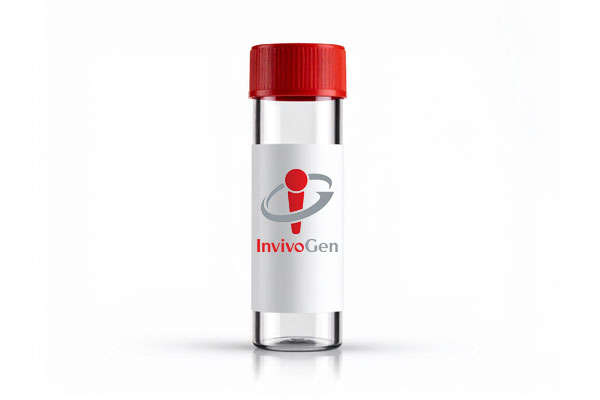
Anti-hEGFR-hIgG1NQ
-
Cat.code:
hegfr-mab12
- Documents
ABOUT
Non-glycosylated monoclonal human IgG1 antibody against human EGFR
Anti-hEGFR-hIgG1NQ features a mutated constant region of the human IgG1 isotype and the variable region of cetuximab. Cetuximab is a chimeric human/mouse IgG1 monoclonal antibody that targets EGFR, a cell surface receptor overexpressed in many types of cancer. EGFR is activated by binding specific ligands, including epidermal growth factor and transforming growth factor-α. Activation of EGFR promotes cell proliferation and survival, as well as angiogenesis, leading to tumor growth and metastasis. Binding of cetuximab to EGFR blocks ligand-receptor binding and induces receptor internalization and subsequent degradation. Consequently, it blocks downstream pathways which regulate cell growth and angiogenesis. In addition, it induces cell death through antibody-dependent cell-mediated cytotoxicity (ADCC) [1,2]. Cetuximab has been approved by the FDA for the treatment of metastatic colorectal cancer and metastatic squamous cell carcinoma of the head and neck [3].
Anti-hEGFR-hIgG1 contains a N-glycosylation mutation of the constant region of the human IgG1 where potential asparagine (N) glycosylation sites are substituted by glutamine (Q) residues resulting in the production of a non-glycosylated antibody. Glycosylation of an antibody has no effect on antigen binding but is essential for Fc receptor-mediated activity [4]. In non-glycosylated antibodies the effector mechanisms mediated through the Fc receptors types (FcγRI, FcγRII, FcγRIII) and the C1q component of complement are severely compromised or ablated [5]. This antibody has been produced in CHO cells and purified by affinity chromatography with protein G.
Applications: Anti-hEGFR-hIgG1NQ can be used with Anti-hEGFR-hIgG1 to study the impact of effector functions.
References:
Kurai J. et al., 2007. Antibody-dependent cellular cytotoxicity mediated by cetuximab against lung cancer cell lines. Clin Cancer Res. 3(5):1552-61.
Kimura H. et al., 2007. Antibody-dependent cellular cytotoxicity of cetuximab against tumor cells with wild-type or mutant epidermal growth factor receptor. Cancer Sci. 98(8):1275-80.
Vincenzi B. et al., 2010. Cetuximab: from bench to bedside. Curr Cancer Drug Targets. 10(1):80-95.
Arnold J. et al., 2007. The impact of glycosylation on the biological function and structure of human immunoglobulins. Annu Rev Immunol 25:21-50.
Jefferis R., 2009. Glycosylation as a strategy to improve antibody-based therapeutics. Nat Rev Drug Discov. 8:226-34.
All products are for research use only, and not for human or veterinary use.
SPECIFICATIONS
Specifications
flow cytometry
CONTENTS
Contents
-
Product:Anti-hEGFR-hIgG1NQ
-
Cat code:hegfr-mab12
-
Quantity:100 µg
Shipping & Storage
- Shipping method: Room temperature
- Upon receipt, store at -20°C.
- Avoid repeated freeze-thaw cycles
Storage:
Caution:
DOCUMENTS
Documents
Technical Data Sheet
Safety Data Sheet
Certificate of analysis
Need a CoA ?